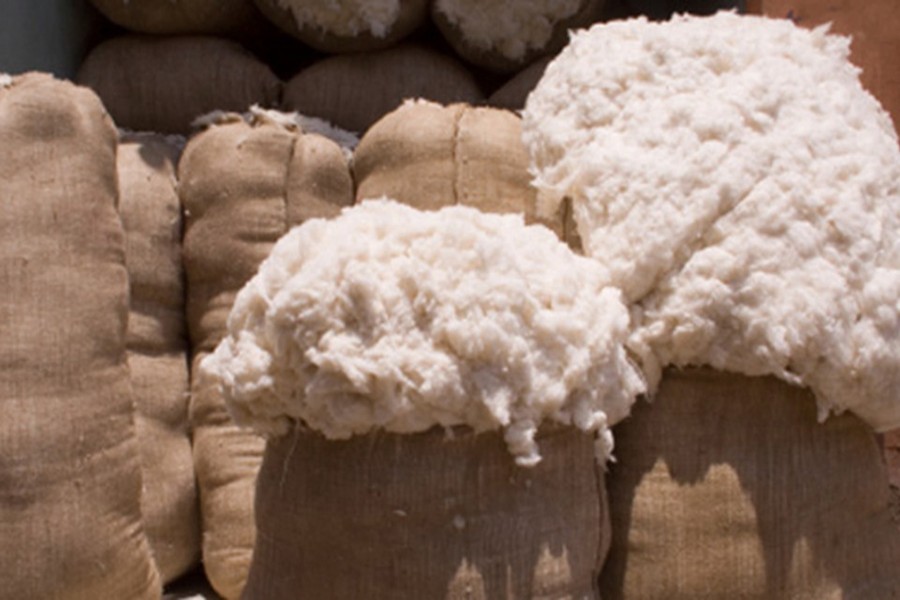American cotton industry leaders have called for lifting the age-old fumigation rules on the import of US commodity in Bangladesh.
Fumigation not only imposes an additional cost burden on the importers and spinners of Bangladesh but also results in increased lead time, they said.
"It is time to review the unfair restrictions like fumigation on the import of US cotton in Bangladesh," said Raymond Faus, who is the president of American Cotton Shippers Association (ACSA).
"Only US cotton is subject to fumigation in Bangladesh, allegedly to prevent boll weevil but that boll weevil has been eradicated from the US long ago," he added.
Mr Faus was a number of a US delegation who was in Dhaka recently on the occasion of the Cotton Day.

During their stay in the capital, the delegation sat in an interview with a select group of journalists.
Insiders noted that fumigation rule was enacted way back in the late 1960s to "protect Pakistani cotton against competition from the US cotton".
"However, this rule is no more relevant in the context of Bangladesh as this country is not a major cotton producer and depends heavily on imported cotton anyway," said Sabbir Ahmed Chowdhury, Programme Representative of Cotton Council International in Bangladesh.
With more than seven million bales of import last year, Bangladesh is the largest cotton importer in the world.
The United States, on the other hand, is the world's largest exporter of cotton.
However, US has a small share in this huge Bangladeshi cotton market as the later is overwhelmingly dependent on Indian cotton for feeding its readymade garment industry.
"US cotton, however, can become a bigger source of high quality, reliable cotton in Bangladesh if a level playing field can be created," said William R. Bettendorf, Director of Cotton Council International.
"And for that, it is necessary to remove those unnecessary restrictions like fumigation," he added.
Apart from fumigation process, the US cotton industry leaders also noted phytosanitary requirement is a major hurdle for the import of cotton in the country.
"Almost no other cotton importing countries including China or Vietnam have that phytosanitary requirement," Bettendorf noted.
In addition, US cotton industry insiders also identified the distance between the two countries and the congestion at the Chittagong port as major hurdles for increasing US cotton shipment in Bangladesh.
"Long transit time coupled with the congestion at the Chittagong port increases the cost while also creating much more exposure to price volatility," said Mr Faus, who is also the CEO of US cotton giant Omnicotton.
Despite such obstacles, cotton producers from the United States observed that compared to other major exporters, the US can provide a more reliable and quality supply for the local spinners.
"Cotton from the United States is machine picked, it is contamination-free and it can also provide a more reliable supply," he said.
"Also, the US cotton is independently classed by the US Department of Agriculture. So, it is more reliable in terms of quality and characteristics," said Tim G North, who is the CEO of ECOM USA.
"Even India, which is the biggest source of cotton for Bangladesh, imports most of its cotton from the US," said Bettendorf.
China has recently imposed 25 per cent retaliatory duty on the import of cotton from the US as part of, what has been termed, the 'trade war' between the two countries.
Reflecting on this, the US cotton industry insiders said that the move might result in slight changes in the trade flow of cotton across the world.
"Probably, we are going to see US cotton going to other countries like South Korea or Bangladesh in a larger volume as a result of this move," Mr Faus said.
"At the same time, other sources of cotton like Australia or Brazil may now head back to China," he added.


